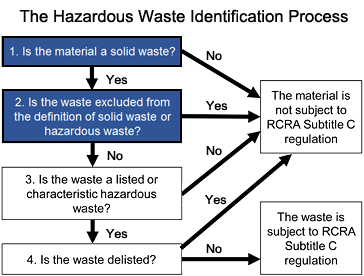The Basic Principles Of Reclaim Waste
The Basic Principles Of Reclaim Waste
Blog Article
The Best Guide To Reclaim Waste
Table of ContentsUnknown Facts About Reclaim WasteThe Facts About Reclaim Waste Uncovered8 Easy Facts About Reclaim Waste ExplainedThe smart Trick of Reclaim Waste That Nobody is Discussing7 Simple Techniques For Reclaim Waste
Discover the kinds, events, and kinds of fluid waste. Residential sewer waste refers to the waste and products from a domestic septic system. This type of waste is created by human beings in houses, institutions, and various other buildings. This only consists of sewage-disposal tanks that have a drain field. The proper administration and disposal of domestic sewer waste need liquid waste to be moved to a sewer treatment plant where the proper approaches and equipment are related to cleanse and deal with waste.
Business waste typically consists of potential hazards, such as combustible materials or a blend of fluid and strong waste products, and requires a more innovative and comprehensive disposal process. The disposal of business waste usually includes the filtration of waste before transport to make certain risk-free and proper disposal. Industrial waste is created from byproducts and drainage of industrial processes and production.
This type of waste can not utilize the exact same sewage administration transport or procedures as septic or business liquids. The hazardous waste monitoring procedure requires the inspection and testing of liquid waste before it undertakes the disposal process (industrial wastewater treatment). Runoff waste is the liquid waste that originates from overflow and excess stormwater in very booming areas or cities
Runoff waste can trigger contamination and flooding if not dealt with appropriately. Making sure correct waste administration can protect against disasters and lower environmental damage.
The 9-Minute Rule for Reclaim Waste
Contact PROS Services today to discover our waste monitoring and disposal services and the appropriate methods to take care of the fluid waste you create.
(https://www.twitch.tv/reclaimwaste1/about)This so-called 'wastewater' is not just a crucial source however, after therapy, will be released to our land, rivers or the ocean. Utilized water from toilets, showers, baths, cooking area sinks, laundries and industrial procedures is understood as wastewater.

water utilized to cool down equipment or clean plant and equipment). Stormwater, a kind of wastewater, is drainage that streams from agricultural and city areas such as roofs, parks, gardens, roadways, paths and rain gutters into stormwater drains, after rain. Stormwater moves without treatment directly to local creeks or rivers, ultimately getting to the sea.
Facts About Reclaim Waste Revealed
In Queensland, a lot of wastewater is dealt with at sewage treatment plants. Wastewater is transferred from residential or industrial websites through a system of drains and pump stations, recognized as sewage reticulation, to a sewer therapy plant. Neighborhood governments construct, keep and operate most sewer therapy plants. Operators are certified under the Environmental Security Act 1994 to discharge cured wastewater at an acceptable ecological standard into rivers.
The Division of Natural Resources recommends city governments concerning managing, operating and keeping sewage systems and treatment plants. In unsewered areas, local governments might need homeowners to set up individual or house sewage treatment systems to deal with residential wastewater from toilets, kitchen areas, bathrooms and laundries. The Department of Natural Resources authorises making use of home systems when they are confirmed to be efficient.
In some brand-new neighborhoods, treatment of some stormwater to get rid of litter, sand and crushed rock has started utilizing gross pollutant catches. Wastewater therapy happens in 4 stages: Gets rid of strong matter.
Wastewater then streams into large containers where solids settle and are gotten rid of as sludge. Grease and residue are skimmed from the surface. Utilizes small living organisms knows as micro-organisms to damage down and remove remaining liquified wastes and fine bits. Micro-organisms and wastes are incorporated in the sludge. Removes nitrogen and phosphorus nutrients that might trigger algal flowers in our rivers and intimidate aquatic Learn More life.
Rumored Buzz on Reclaim Waste
Nutrient elimination is not readily available in all sewer treatment plants due to the fact that it requires costly specialized tools. It is coming to be much more usual in Queensland. Clear liquid effluent produced after therapy might still include disease-causing micro-organisms. If this effluent is launched into waterways such as rivers or the sea, the micro-organisms will ultimately die out.

Most wastewater flows into the sewage system. Under the Act, local governments provide authorizations and permits for environmentally appropriate tasks (Ages) involving wastewater launches that could have a neighborhood impact.
4 Simple Techniques For Reclaim Waste
Surveillance offers factual info regarding water top quality and can confirm that permit problems are being satisfied. The details acquired with monitoring gives the basis for making water high quality choices.
Report this page